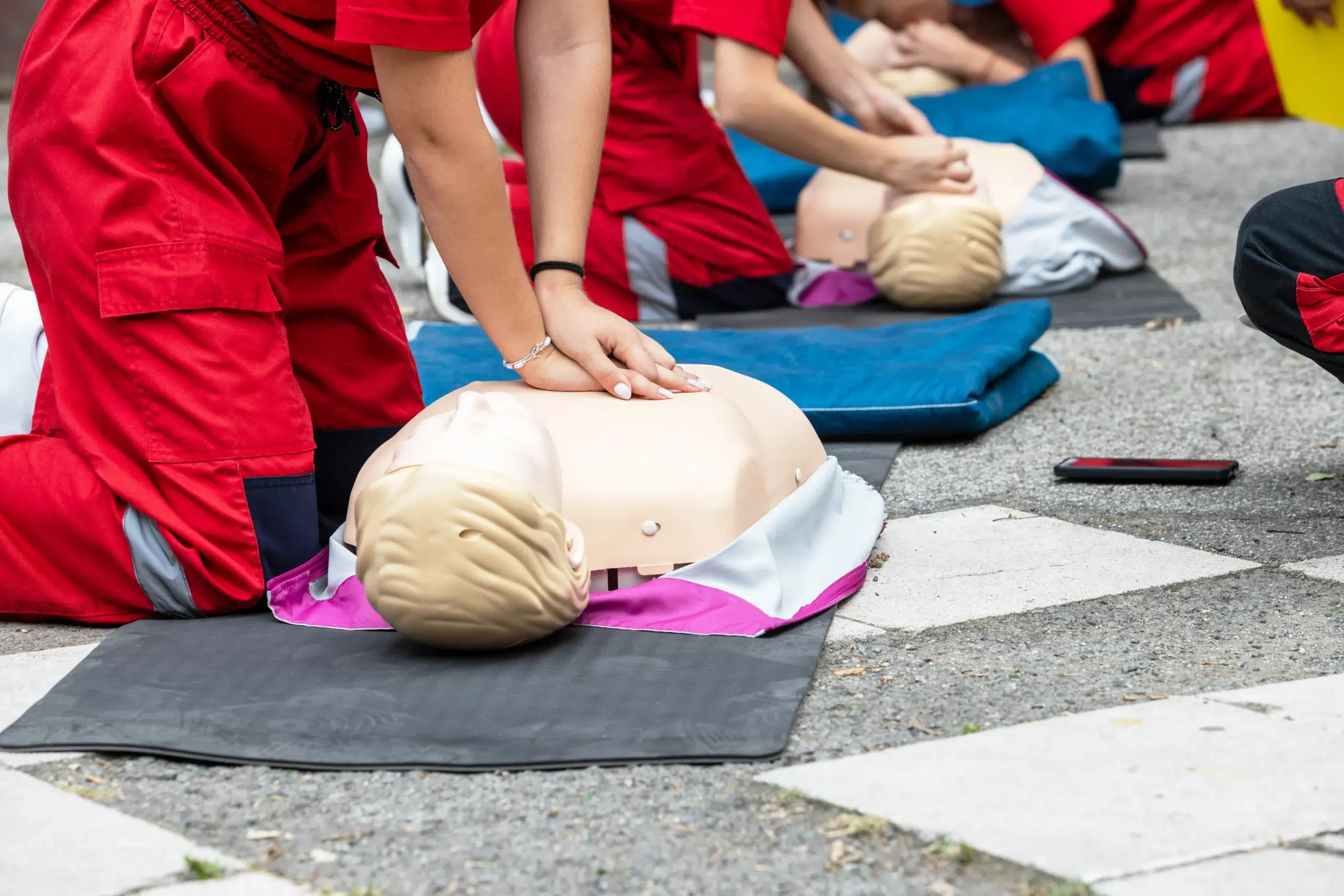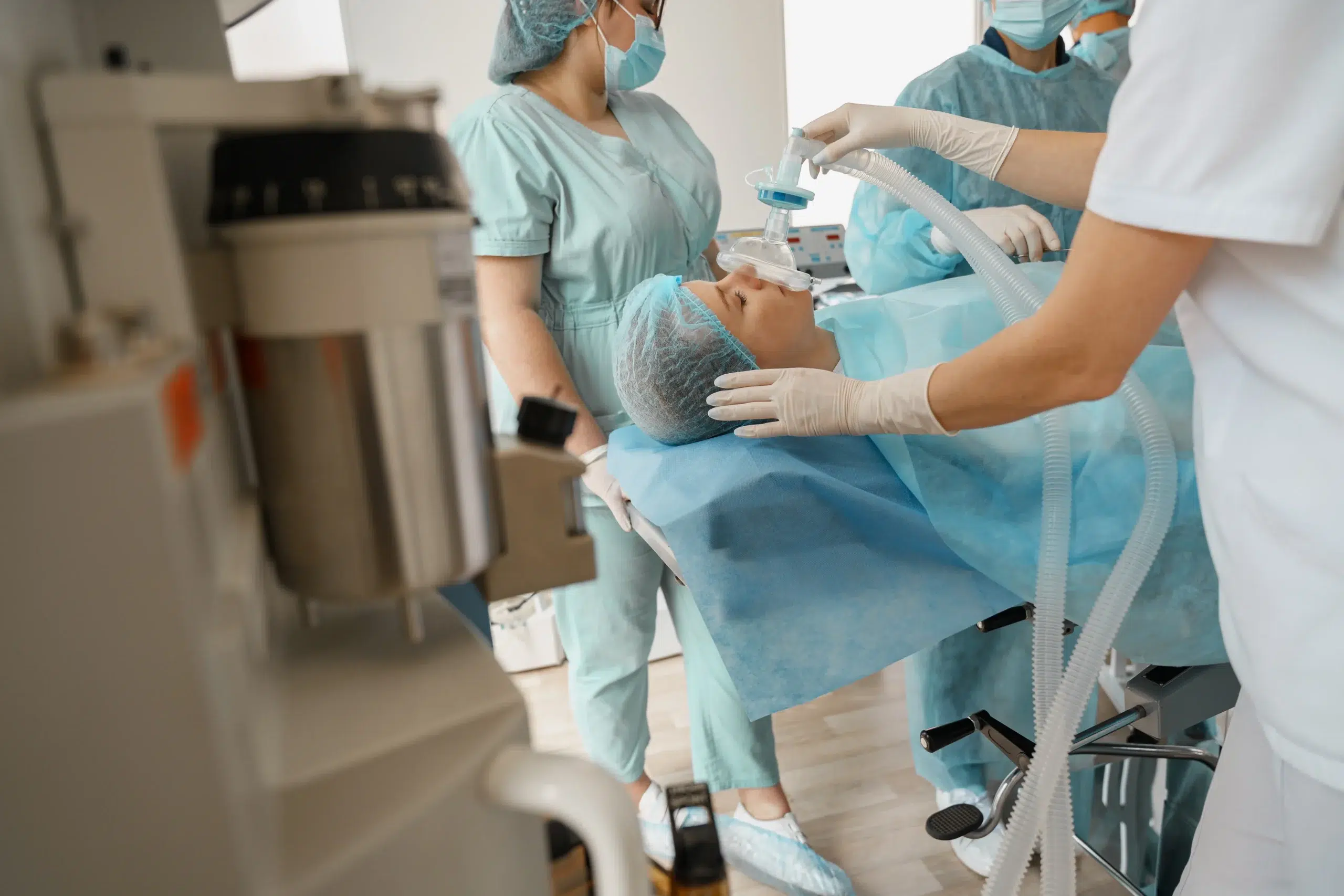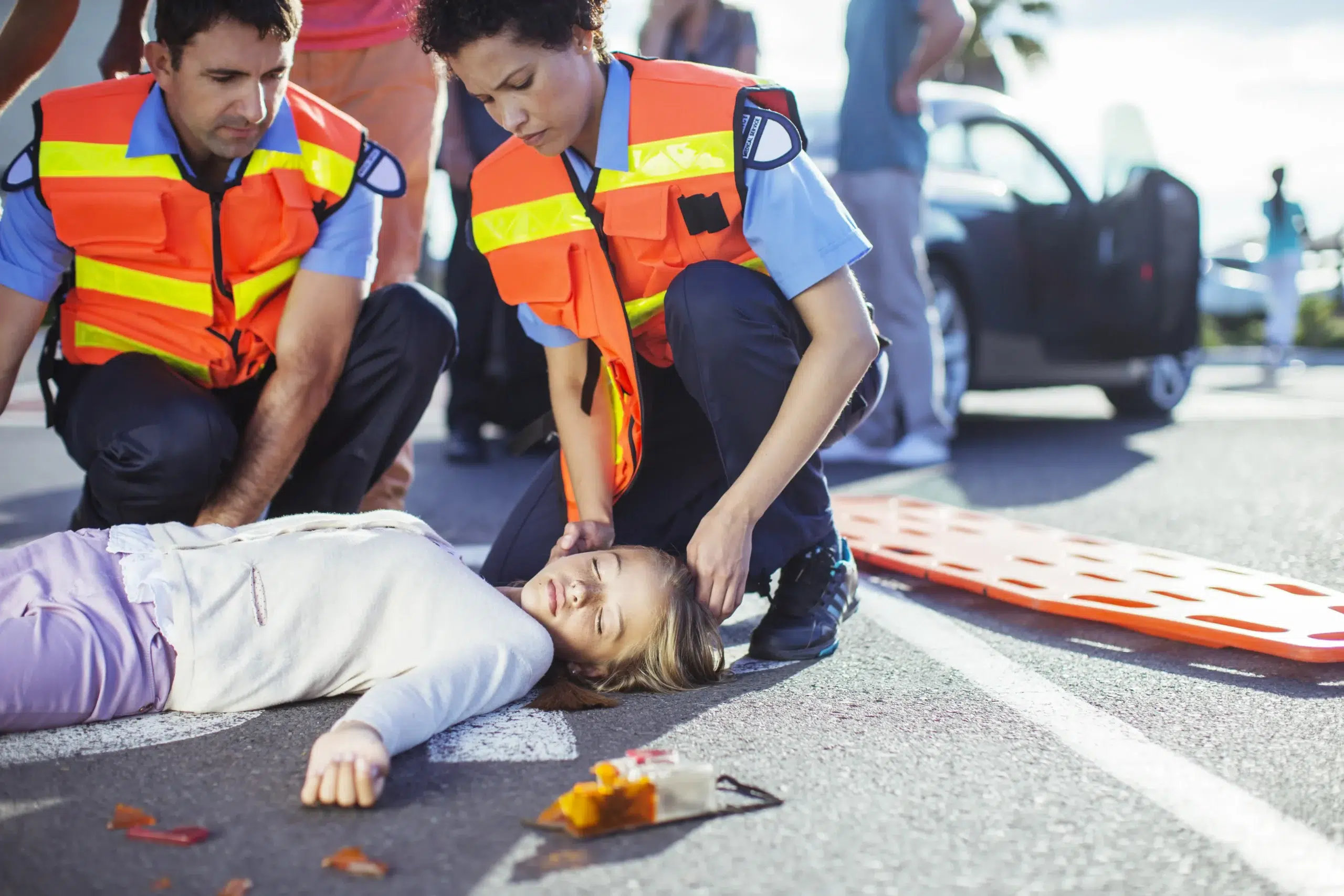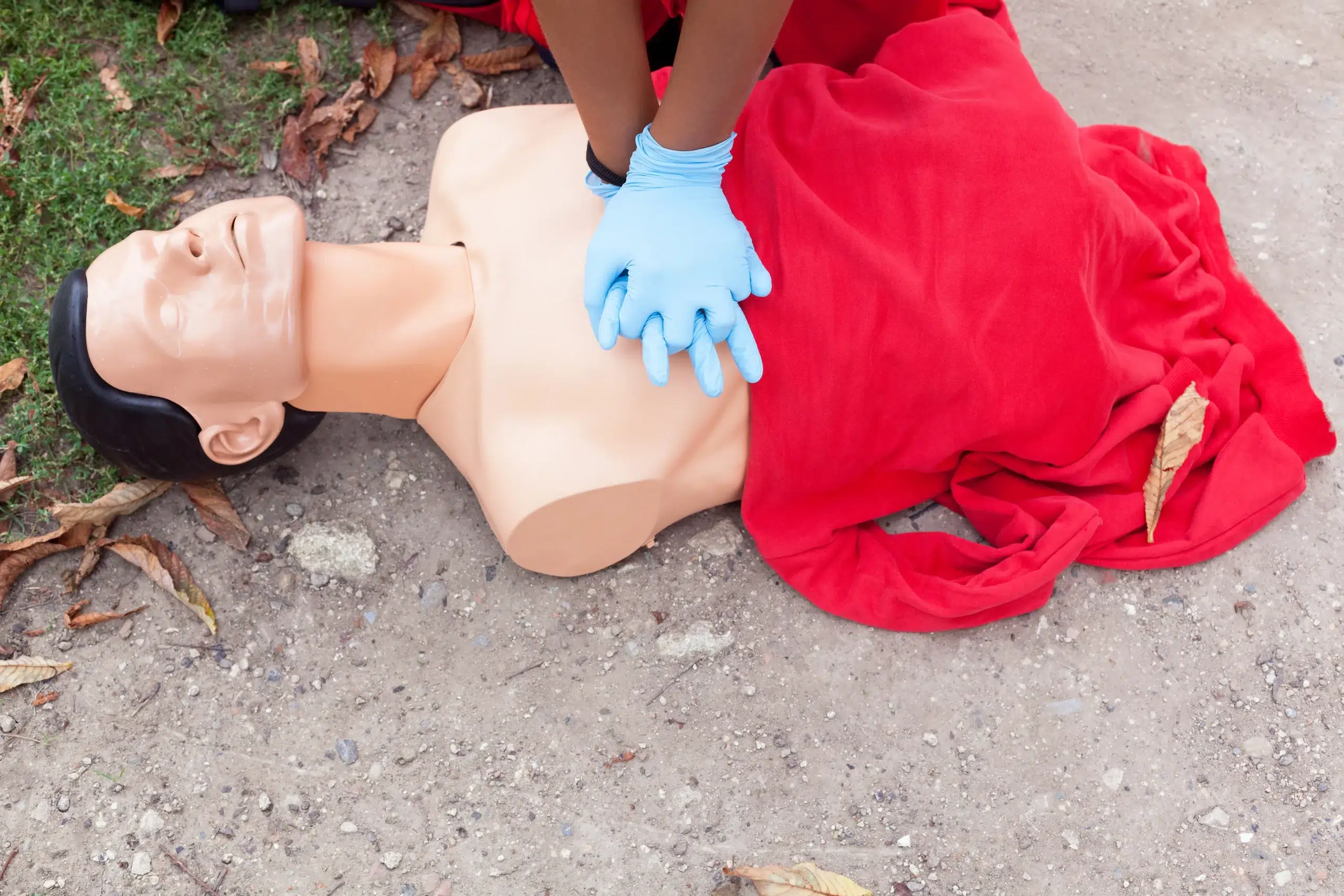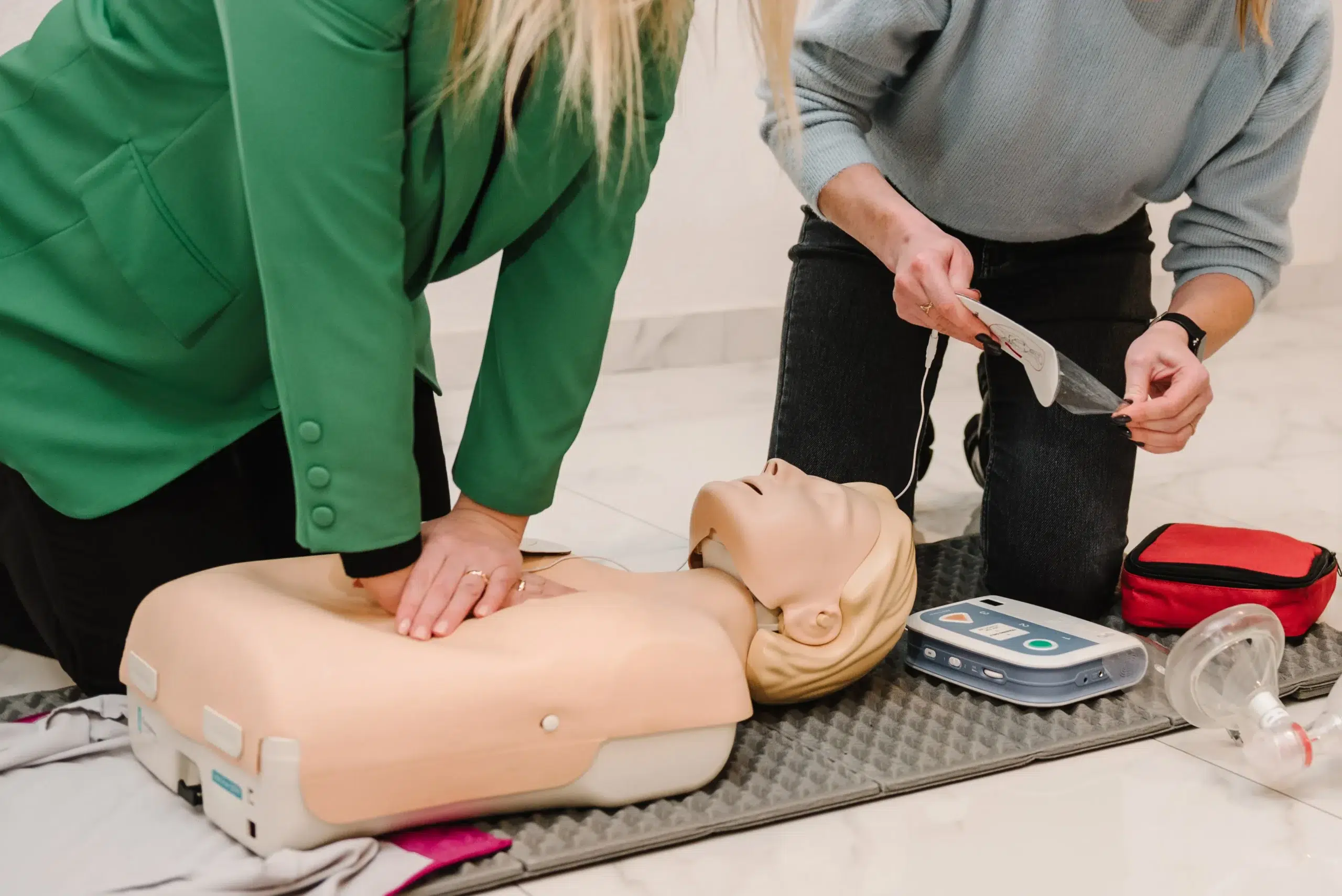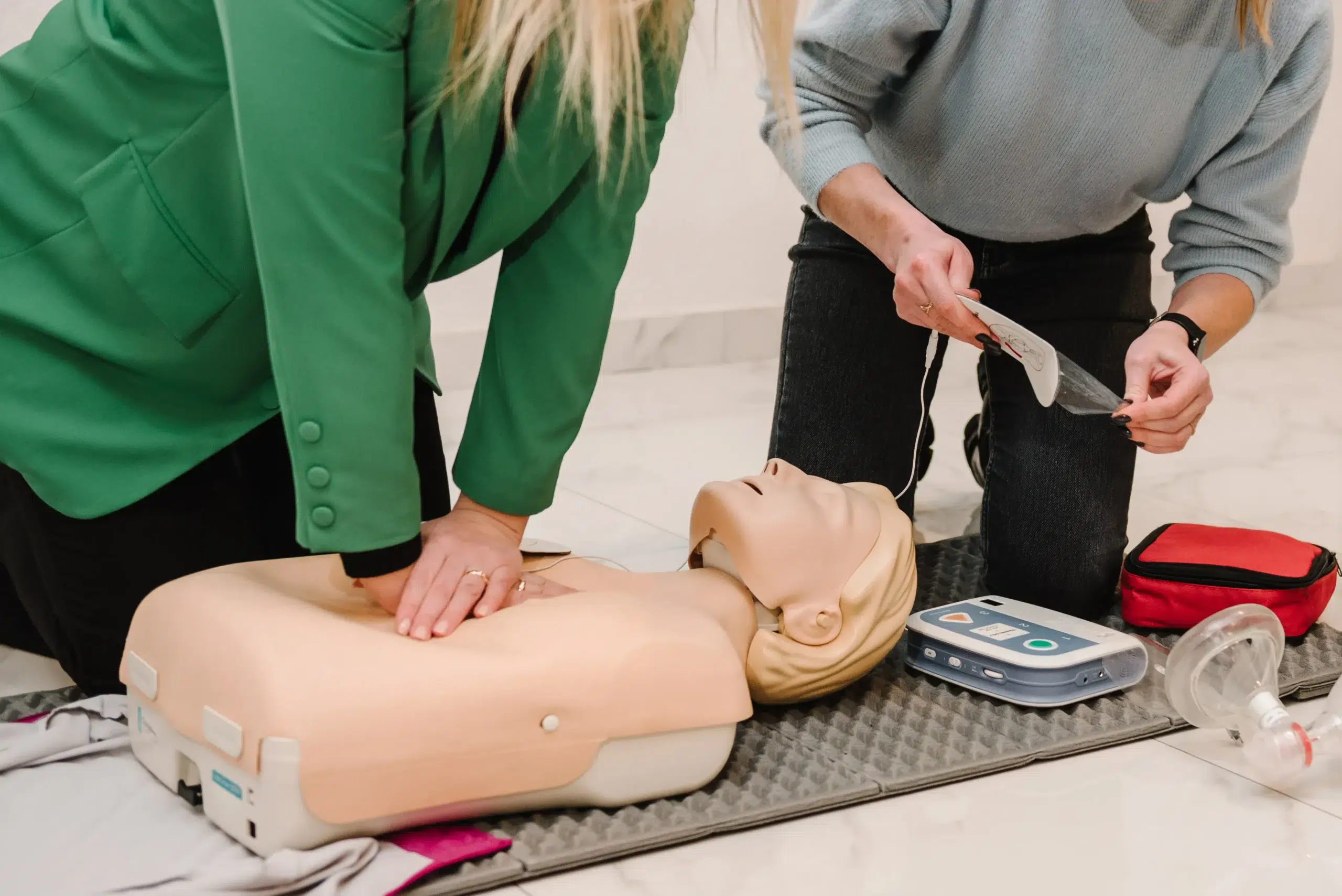In a medical emergency, seconds can matter. Knowing CPR can give you the confidence to act quickly and potentially save a life. This guide is your go-to resource for CPR training in Orangevale. Whether you’re a healthcare professional seeking BLS certification, a parent wanting to learn how to respond to emergencies involving children, or simply someone who wants to be prepared, we’ve got you covered. We’ll explore the various CPR class types, top training providers in Orangevale, including Citrus Heights CPR Classes, and the costs and value of certification. We’ll also delve into flexible training schedules, the benefits of CPR certification, and what to expect in a CPR class. Finally, we’ll debunk common myths and discuss how to maintain your certification. Empower yourself with the life-saving skills of CPR.
Key Takeaways
- Find the right CPR class for you: Whether you’re a healthcare provider, a parent, or simply someone who wants to be prepared, various CPR class types cater to different needs and experience levels.
- Accessible and convenient training options are available: Explore various CPR training providers offering flexible schedules, including weekday and weekend classes, on-site training, and blended learning formats to fit your busy lifestyle.
- CPR skills require upkeep: Maintain your CPR certification and stay up-to-date with the latest guidelines by taking refresher courses every two years. This ensures you can confidently and effectively administer CPR when needed.
What is CPR Training in Orangevale?
CPR training in Orangevale gives you the skills to respond to medical emergencies, specifically cardiac arrest. Learning CPR can dramatically increase someone’s chance of survival. These classes teach you how to perform chest compressions, give rescue breaths, and use an AED (automated external defibrillator). CPR training is available for both healthcare professionals and the general public, so anyone can learn these life-saving skills. Several organizations offer CPR classes in Orangevale, including the American Red Cross, which offers various learning formats, like in-person, online, and blended learning, to fit your schedule and preferences. Knowing CPR empowers you to act quickly and confidently in a crisis, making a real difference in your community. You can explore additional details about CPR class duration and certification through resources like CPR AED Course.
CPR Class Types
Knowing which CPR class you need can feel overwhelming. Don’t worry, it’s simpler than you think! This section breaks down the main types of CPR training offered in Orangevale, so you can find the right fit.
BLS Certification
BLS (Basic Life Support) certification is the gold standard for healthcare professionals, including doctors, nurses, paramedics, and other medical personnel. This course provides comprehensive training on single-rescuer and team-based CPR for adults, children, and infants. It also covers essential life-saving techniques like using an AED and relieving choking. BLS Certification emphasizes high-quality chest compressions, effective ventilation, and the importance of teamwork during a cardiac arrest. If you’re pursuing or currently working in healthcare, BLS certification is likely a requirement. Citrus Heights CPR Classes offers BLS certification courses to help you meet this important qualification.
Heartsaver CPR/AED
Heartsaver CPR/AED courses are designed for anyone who wants to learn CPR and how to use an AED, even without a medical background. This class is perfect for teachers, coaches, personal trainers, childcare providers, office workers, and other community members. Heartsaver training empowers you to respond confidently to cardiac emergencies and breathing emergencies in various settings. It covers adult, child, and infant CPR, AED use, and relief of choking. While not as in-depth as BLS, Heartsaver CPR/AED provides essential life-saving skills. Check with your local providers for Heartsaver CPR/AED training in your area.
Pediatric First Aid and CPR
For those working with children, like parents, nannies, babysitters, and daycare providers, Pediatric First Aid and CPR training is a must. This specialized course focuses on responding to emergencies involving infants and children. You’ll learn how to perform CPR on young ones, provide first aid for common childhood injuries like cuts and burns, and manage sudden illnesses. Pediatric First Aid and CPR gives caregivers the confidence and skills to act quickly and effectively in situations that demand immediate attention. Many organizations, including Professional CPR, offer these specialized courses.
Top Orangevale CPR Training Providers
Finding the right CPR training provider is crucial for a positive and effective learning experience. Here’s a look at some of the leading options in and around Orangevale:
Citrus Heights CPR Classes
Citrus Heights CPR Classes offers a range of options, from basic CPR training to specialized certifications like BLS, ACLS, and PALS. They focus on convenient and affordable CPR training, making it easier to get certified. Their classes cater to various needs, from healthcare providers to community members seeking essential life-saving skills. For businesses and large groups, they offer CPR training discounts and a low-price guarantee.
American Heart Association
The American Heart Association offers the RQI (Resuscitation Quality Improvement) program, a modern and efficient way for medical professionals to maintain their BLS, ACLS, and PALS certifications. This program emphasizes continuous quality improvement and offers flexible online learning modules combined with hands-on skills sessions. It’s a valuable resource for healthcare providers seeking to stay up-to-date with the latest resuscitation guidelines.
Red Cross
The American Red Cross provides CPR/AED classes in nearby Sacramento, with options for in-person, online, or blended learning. Their in-person training offers a two-year certification that meets OSHA requirements, making them a good option for individuals and businesses needing to comply with workplace safety standards. The Red Cross also offers a variety of other first aid and safety courses.
Local Fire Department Programs
Many local fire departments, including those serving Orangevale, offer CPR training programs. Some fire departments may even conduct on-site training, bringing the classroom to you. This can be particularly beneficial for businesses and organizations looking to train multiple employees simultaneously. Contact your local fire department or check online for information on available programs and schedules.
CPR Training Costs & Value
Understanding CPR training costs in Orangevale is an important step in choosing the right class. Let’s break down the typical pricing structure and explore ways to make training more affordable.
Individual Class Prices
Individual class prices vary depending on the type of CPR certification you need. Basic CPR and First Aid certification is often less expensive than more advanced courses like BLS for Healthcare Providers. For example, Citrus Heights CPR Classes offers a combined CPR/AED/First Aid course for $24.99, while their BLS Provider course is $34.99. This tiered pricing makes CPR training accessible to a wider range of people. Always check with your chosen provider for their most current pricing.
Group Discounts & Package Deals
If you’re training with a group, look for group discounts. Many training centers, including Citrus Heights CPR Classes, offer reduced rates for group bookings. This can significantly lower the per-person cost, making it a smart choice for workplaces, schools, and community groups. Also, ask about package deals that might combine CPR training with other safety certifications, such as First Aid.
Recertification Costs
CPR certifications expire, typically every two years. Factor in recertification costs when planning your training budget. Renewal courses are usually shorter and less expensive than the initial certification class. Staying current with your CPR skills ensures you’re always prepared to help in an emergency. Check with your certifying organization or training provider for specific recertification requirements and costs.
Flexible CPR Training Schedules & Locations
Finding a CPR class that fits your schedule shouldn’t be a hurdle. Thankfully, Orangevale offers a variety of options to accommodate busy lives. Let’s explore the different CPR training schedules and locations available.
Weekday vs. Weekend Classes
Many CPR training providers in and around Orangevale offer classes throughout the week, including both weekday and weekend options. This flexibility makes it easier for working professionals, students, and busy parents to find a time that works. For example, Citrus Heights CPR Classes prioritizes accessibility with a range of course times and competitive pricing. Check with your chosen provider to see what days and times they offer.
On-Site Training
If you’re looking for a more personalized and convenient experience, consider on-site training. Several CPR training organizations will send certified instructors directly to your home or office. This is especially helpful for group training, businesses wanting to certify their employees, or families who prefer to learn together in a comfortable setting. Pro CPR Classes is one example of a provider offering this convenient service. It eliminates travel time and allows for a more focused learning environment.
Online & Blended Learning
Online and blended learning have become increasingly popular for their flexibility. Fully online courses let you complete the theoretical portion of the training at your own pace, usually within a few hours. However, keep in mind that online-only training might not provide the same level of hands-on practice as in-person classes. Blended learning offers a solution by combining online coursework with an in-person skills session. This approach ensures you get both the theoretical knowledge and the practical experience needed to confidently perform CPR. The American Red Cross is one organization that offers this blended learning format, allowing you to learn the basics online and then demonstrate your skills in person.
CPR Certification Benefits
Getting CPR certified isn’t just about checking a box; it’s about equipping yourself with skills that can make a real difference. Whether you’re a healthcare professional, a concerned parent, or simply someone who wants to be prepared, CPR certification offers several valuable benefits.
Life-Saving Skills
Learning CPR is crucial. Every year, countless lives are lost to sudden cardiac arrest. CPR helps maintain blood flow to vital organs until paramedics arrive, significantly increasing the chances of survival. By becoming certified, you gain the ability to potentially save a life in such emergencies. These skills, as highlighted by CPR classes in Orangevale and Sacramento, can make a profound impact within your community.
Career Enhancement
In many professions, CPR certification is either required or highly desirable. Healthcare providers, teachers, lifeguards, and other professionals often seek this certification to demonstrate their commitment to safety. Even if not strictly required for your job, having CPR certification on your resume can give you an advantage, showcasing your initiative and responsibility.
Workplace & Community Safety
Having CPR-trained individuals in workplaces and communities creates a safer environment. A robust CPR education program can dramatically improve the outcome of medical emergencies. Whether it’s a colleague experiencing a cardiac event at work or a stranger collapsing in public, your CPR skills can be invaluable. You become a vital link in the chain of survival, contributing to a more prepared and resilient community.
What Happens in a CPR Class?
CPR classes equip you with the knowledge and skills to respond effectively during cardiac emergencies. They blend instruction, demonstrations, and hands-on practice to ensure you’re prepared to act confidently. Here’s a glimpse of what you can expect:
Hands-On Practice
Hands-on training is crucial for mastering CPR. It’s much more effective than online courses or videos because it allows you to develop muscle memory and build confidence. In a CPR class, you’ll practice chest compressions and rescue breaths on manikins, simulating real-life emergency situations. This hands-on practice is invaluable for developing the skills and confidence to perform CPR effectively under pressure. You’ll learn the correct depth and rate of compressions, proper hand placement, and how to open the airway. Repetitive practice helps solidify these techniques, making them second nature in a real emergency. Citrus Heights CPR Classes offers this essential hands-on training. Contact us to learn more about our programs.
AED Use
Automated External Defibrillators (AEDs) are life-saving devices that can restore a normal heart rhythm during sudden cardiac arrest. CPR classes include training on how and when to use an AED. You’ll learn to recognize the signs of cardiac arrest, how to quickly apply AED pads, and how to follow the device’s voice prompts. Understanding AED operation is a critical component of CPR training, as it significantly increases the chances of survival. Instructors will guide you through the process, ensuring you’re comfortable using an AED in various scenarios. Our BLS certification course at Citrus Heights CPR Classes includes comprehensive AED training.
Scenario-Based Training
Beyond the basics, CPR classes often incorporate scenario-based training. This involves practicing CPR skills in simulated emergency situations. These scenarios might involve a collapsed adult, a choking child, or other realistic events. Scenario-based learning helps you apply your knowledge and skills in a dynamic environment, preparing you for the complexities of real-life emergencies. It also helps build critical thinking skills and reinforces the importance of quick, decisive action. We incorporate realistic scenarios into our training programs at Citrus Heights CPR Classes to ensure you’re fully prepared. Check out our discount group class options.
Choose the Right CPR Program
Finding the right CPR program is crucial for building confidence and competence in life-saving skills. It’s about more than just checking a box; it’s about equipping yourself to handle real emergencies. Here’s what to consider when making your decision:
Accreditation & Certification
First, ensure the program offers a nationally recognized certification. Look for accreditation from organizations like the American Heart Association (AHA). These certifications demonstrate that your training meets established standards, which is important for both personal preparedness and professional requirements. A recognized certification validates your skills and can strengthen your resume.
Instructor Qualifications
The instructor’s expertise directly affects your learning experience. Instructors with real-world experience, such as paramedics or firefighters, bring valuable practical insights to the classroom. Before enrolling, research the instructor’s credentials and look for student testimonials. A knowledgeable and engaging instructor can significantly impact your understanding and skill development. Contact Citrus Heights CPR Classes to learn more about their instructors.
Class Size & Attention
Think about class size and the level of individual attention you’ll receive. Smaller classes often allow for more personalized feedback and hands-on practice, which is essential for developing proper CPR technique. If you thrive in a smaller group setting, inquire about class sizes before registering. Flexible scheduling and convenient on-site training options can also make fitting CPR training into your busy life much easier.
Maintain Your CPR Certification
Keeping your CPR skills sharp is essential for responding effectively in emergencies. This section covers how to maintain your certification and stay up-to-date with the latest guidelines.
Renewal Requirements
CPR certifications are typically valid for two years. After this period, you’ll need to renew your certification to ensure your skills are current. This refresher is important because techniques and guidelines can evolve. Regular renewal keeps your knowledge fresh and boosts your confidence in performing CPR effectively when it truly matters.
Guideline Updates
Organizations like the American Heart Association (AHA) and the American Red Cross regularly revise their CPR guidelines based on the latest research. Staying informed about these updates is crucial, as they can significantly impact how you respond in a real-life emergency. Taking a refresher course ensures your skills align with current best practices, giving you the best chance to provide effective assistance.
CPR Training Myths Debunked
Let’s clear up some common misconceptions about CPR training. These myths can prevent people from learning this life-saving skill, so let’s set the record straight.
CPR for Everyone
One myth is that only medical professionals need to know CPR. The truth is, anyone can learn and effectively perform CPR. Quality training programs, like those offered by Citrus Heights CPR Classes, equip you with the knowledge and skills to act confidently in an emergency. You don’t need a medical background to make a difference. Learning CPR empowers you to help family, friends, coworkers, or even strangers in a critical situation.
Hands-On Training Importance
Another misconception is that online CPR courses are just as effective as in-person training. While online resources can be helpful supplements, hands-on training is essential. Practicing on manikins simulates real-life scenarios and builds the muscle memory and confidence you need to respond effectively under pressure. This tactile experience is invaluable for developing the necessary skills and reflexes.
CPR Effectiveness
Some people believe CPR rarely works. This couldn’t be further from the truth. CPR helps maintain vital blood flow to the brain and other organs until professional help arrives. While it doesn’t guarantee survival, CPR significantly increases the chances of a positive outcome following sudden cardiac arrest. Learning and performing CPR can truly be the difference between life and death.
Regular Skill Refreshment
Finally, some assume that once you’ve learned CPR, you’re good to go for life. Unfortunately, CPR skills can deteriorate over time. Regular refresher courses are crucial to keep your skills sharp and ensure you’re prepared to act effectively when needed. Staying up-to-date with the latest guidelines can also improve your confidence and ability to provide assistance. Regular practice ensures you can confidently and effectively administer CPR when it matters most.
Related Articles
- Best CPR Training in Sacramento: Courses & Providers – Citrus Heights CPR Classes
- Why CPR Matters in Healthcare – CPR and First-Aid Training
- BLS for Healthcare Providers in Sacramento: A Complete Guide – Citrus Heights CPR Classes
- CPR Training in Sacramento: Your Guide – Citrus Heights CPR Classes
- PALS Training in Citrus Heights: A Comprehensive Guide
Frequently Asked Questions
What’s the difference between BLS and Heartsaver CPR/AED training?
BLS (Basic Life Support) certification is a comprehensive course designed for healthcare professionals. It covers a broader range of skills, including team-based resuscitation and advanced airway management. Heartsaver CPR/AED, on the other hand, focuses on essential CPR and AED skills for anyone, regardless of medical background. It’s a great option for community members, teachers, or anyone who wants to learn basic life-saving techniques.
How much does CPR training typically cost in Orangevale?
Costs vary depending on the course type and provider. Basic CPR/AED classes are generally more affordable than advanced certifications like BLS. Many providers offer group discounts, so check for those if you’re training with friends, family, or colleagues. Don’t hesitate to contact different providers to compare pricing and find the best fit for your budget.
What if my workplace requires CPR certification?
Many employers require or strongly encourage CPR certification, especially in healthcare, education, and childcare. Check with your employer to see which type of certification they require – BLS, Heartsaver, or a specialized course like Pediatric First Aid and CPR. Some employers even offer on-site training, so inquire about that possibility.
How can I fit CPR training into my busy schedule?
CPR training providers understand busy schedules and offer various class times, including evenings and weekends. Online and blended learning options provide additional flexibility, allowing you to complete the coursework at your own pace and then attend a shorter in-person skills session. On-site training is another convenient option, bringing the class directly to your home or workplace.
How often do I need to renew my CPR certification?
Most CPR certifications are valid for two years. Renewal courses are typically shorter than the initial certification and ensure your skills and knowledge are up-to-date. Staying current with your certification is essential for maintaining your confidence and competence in performing CPR effectively.


